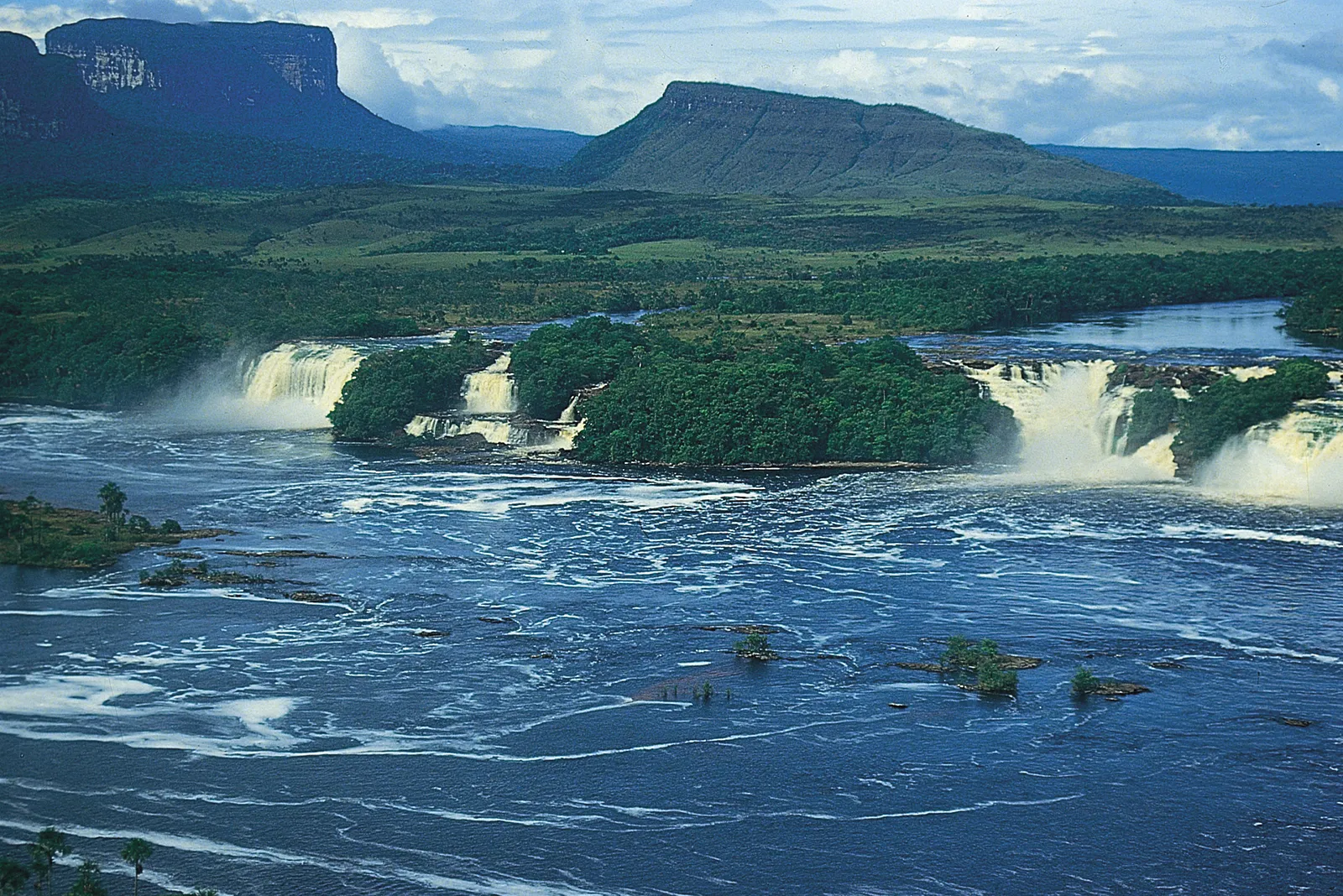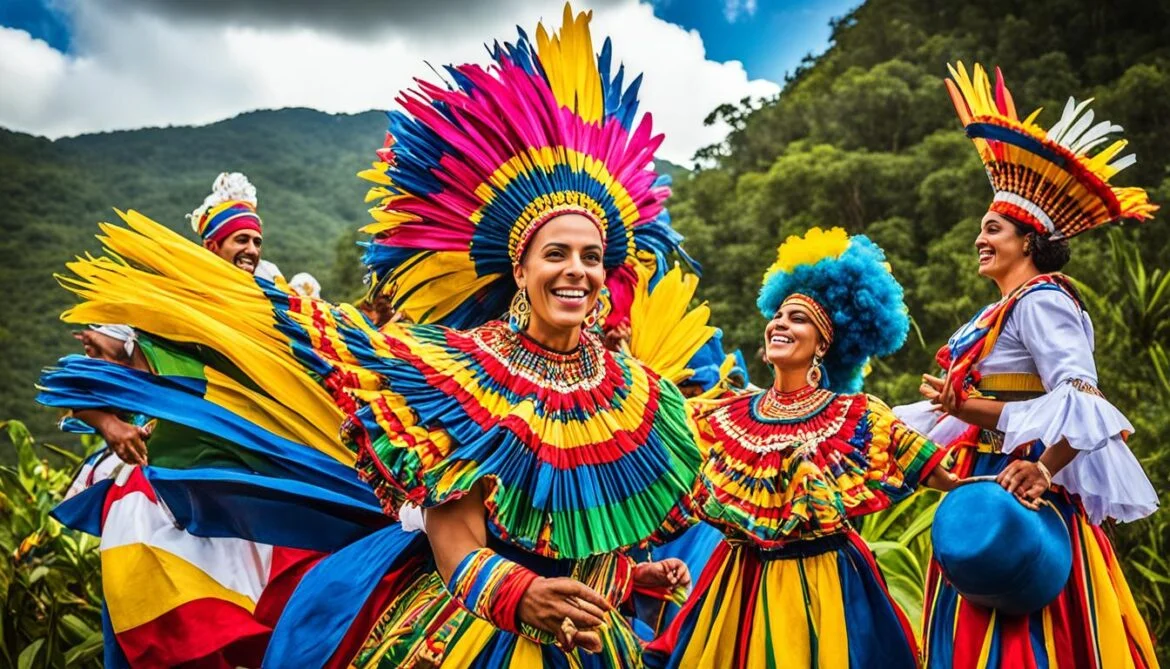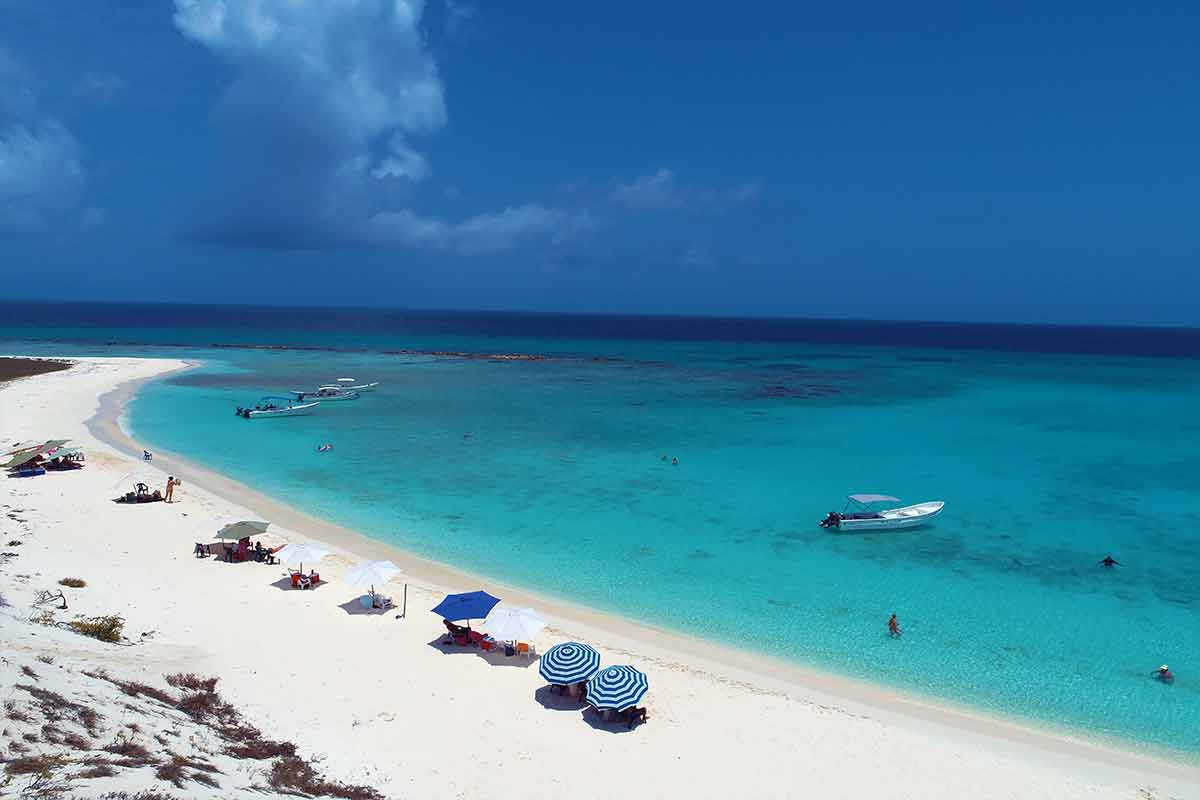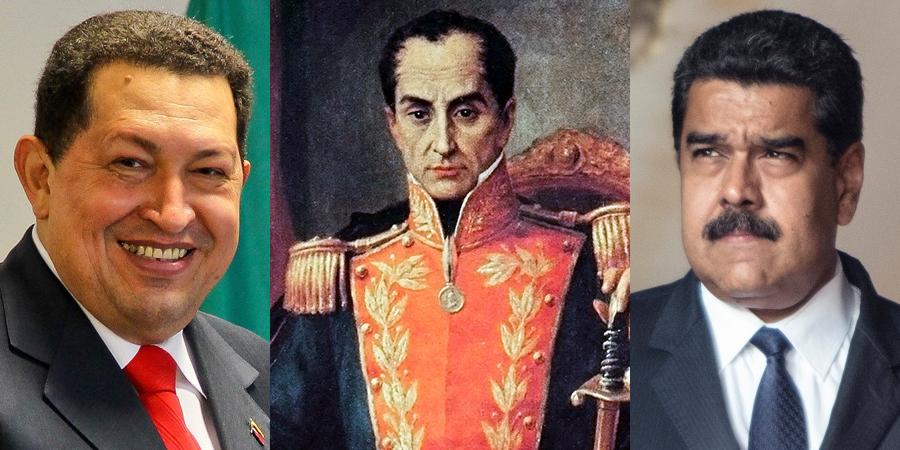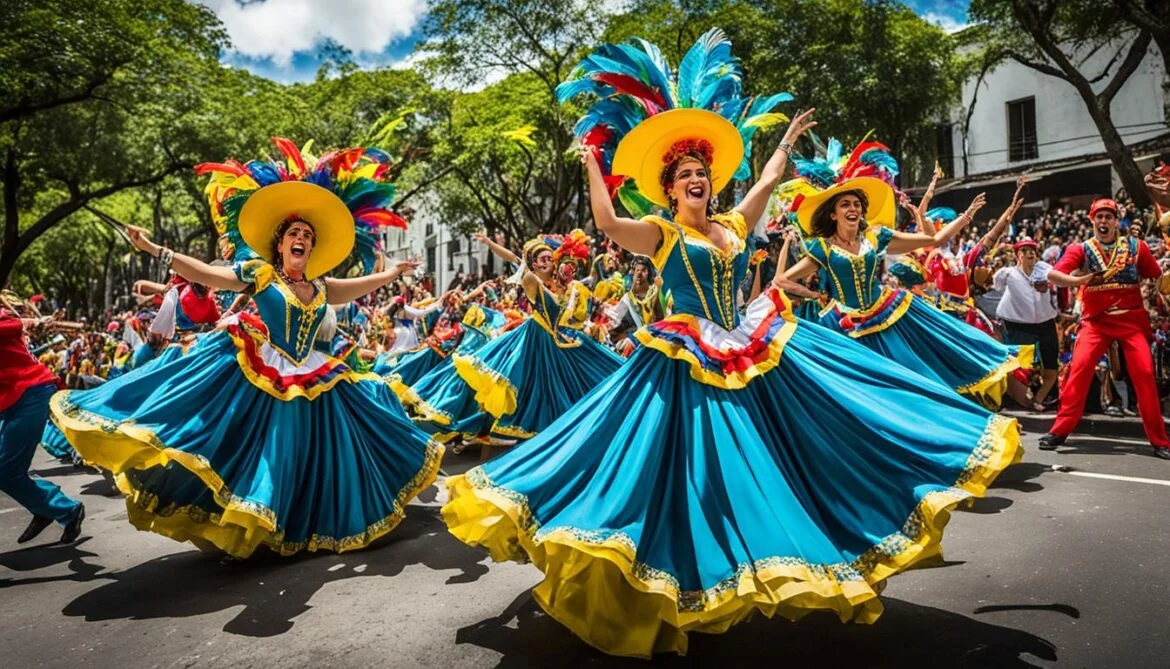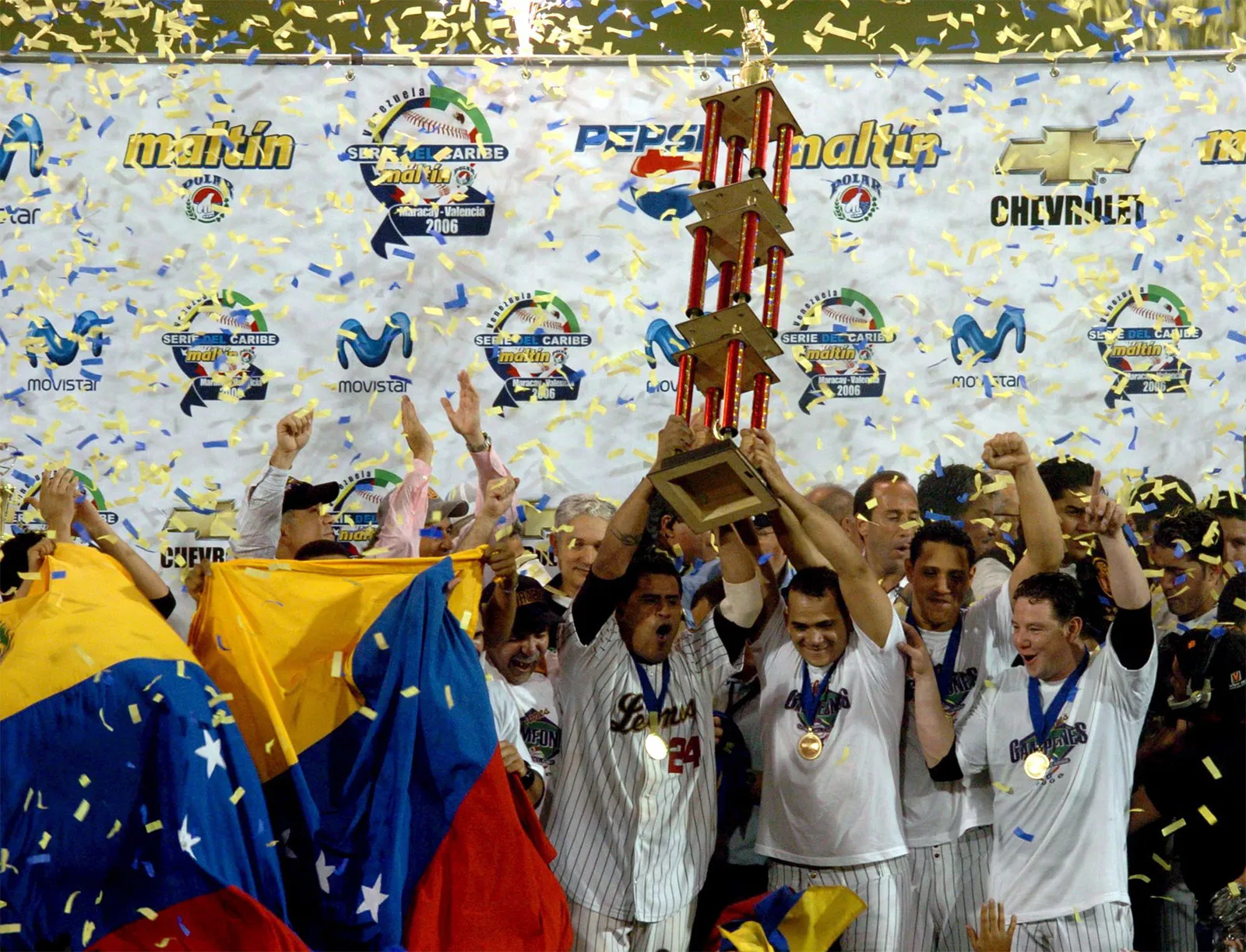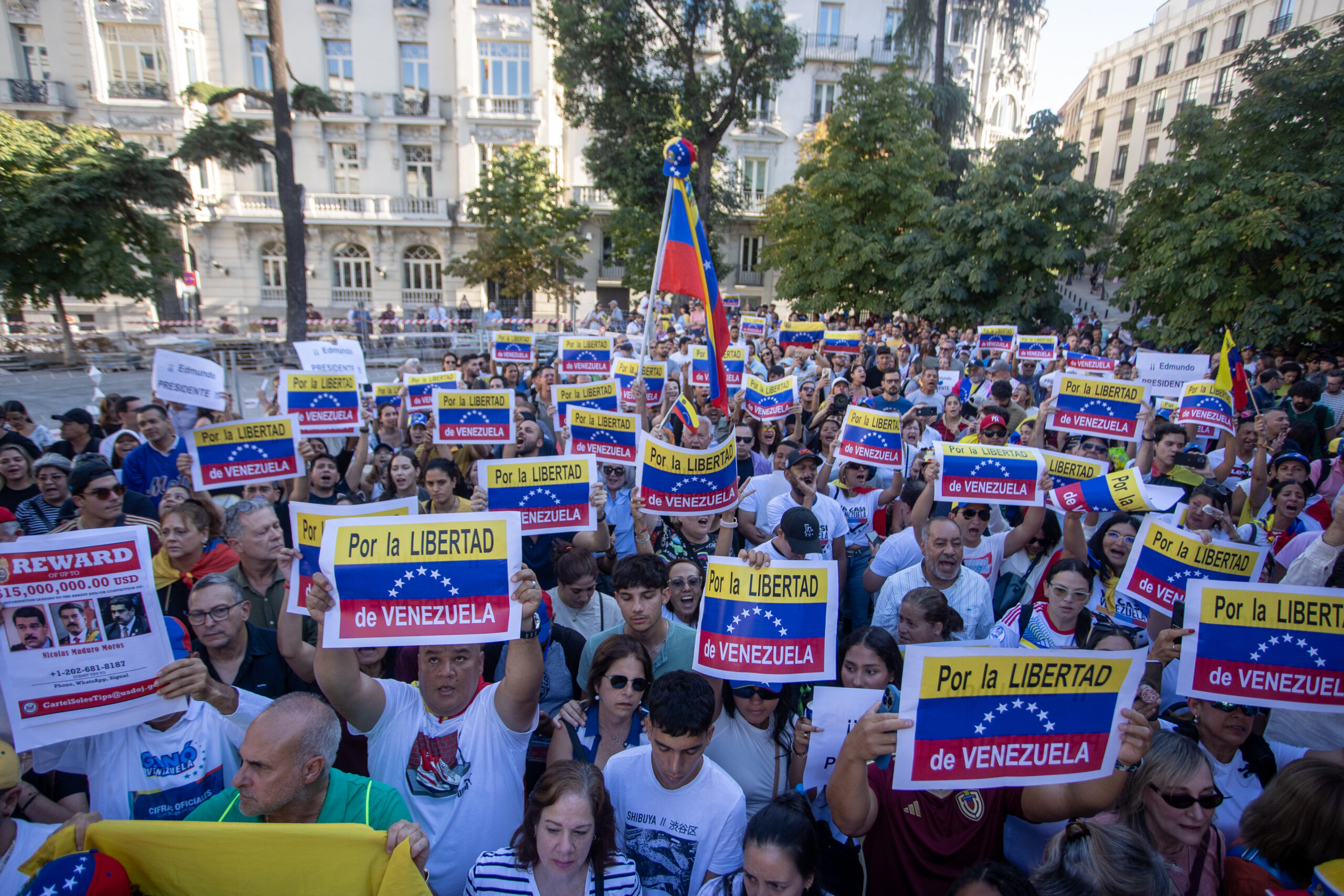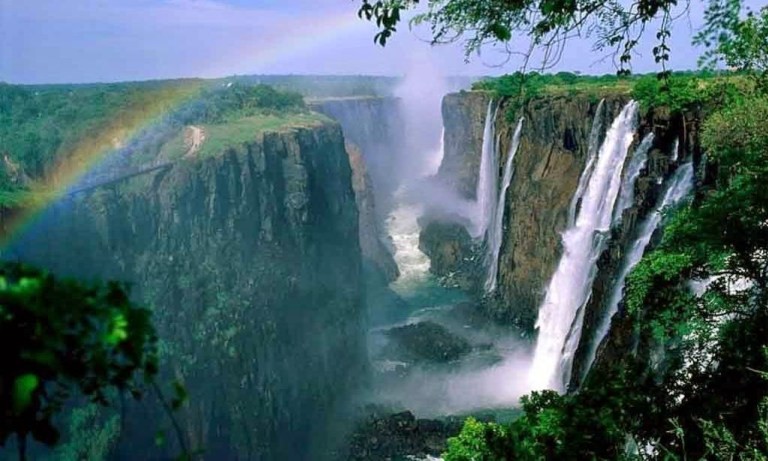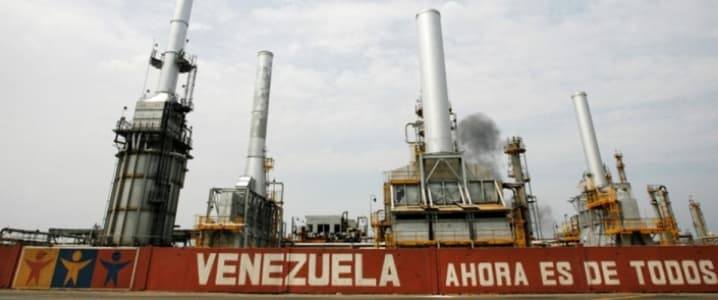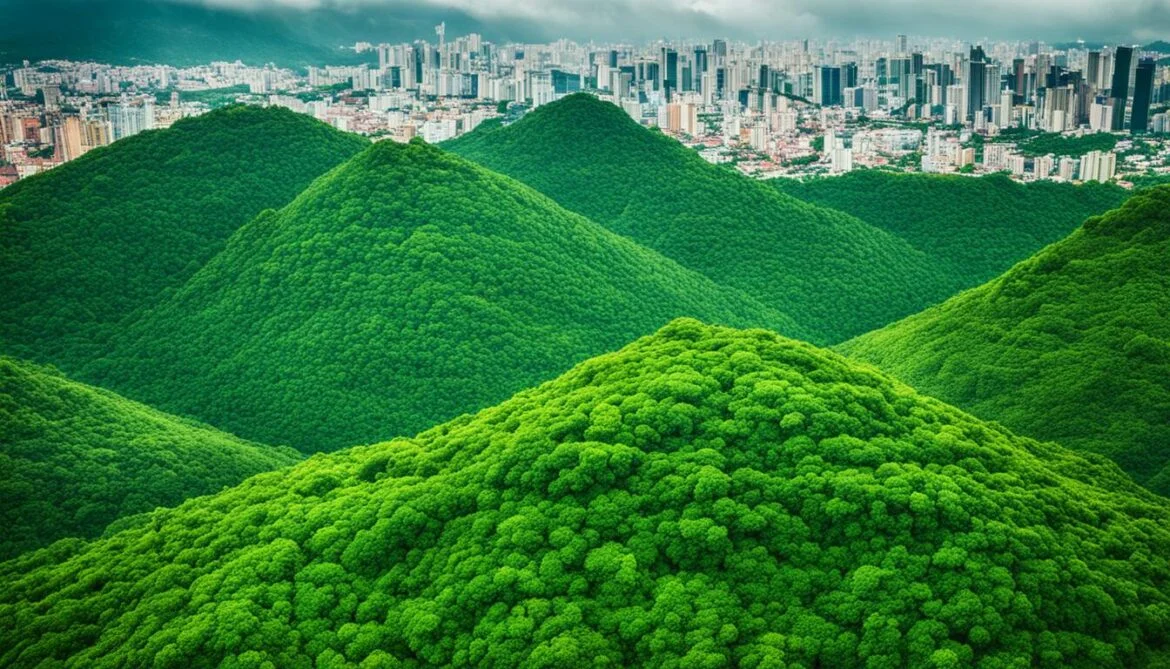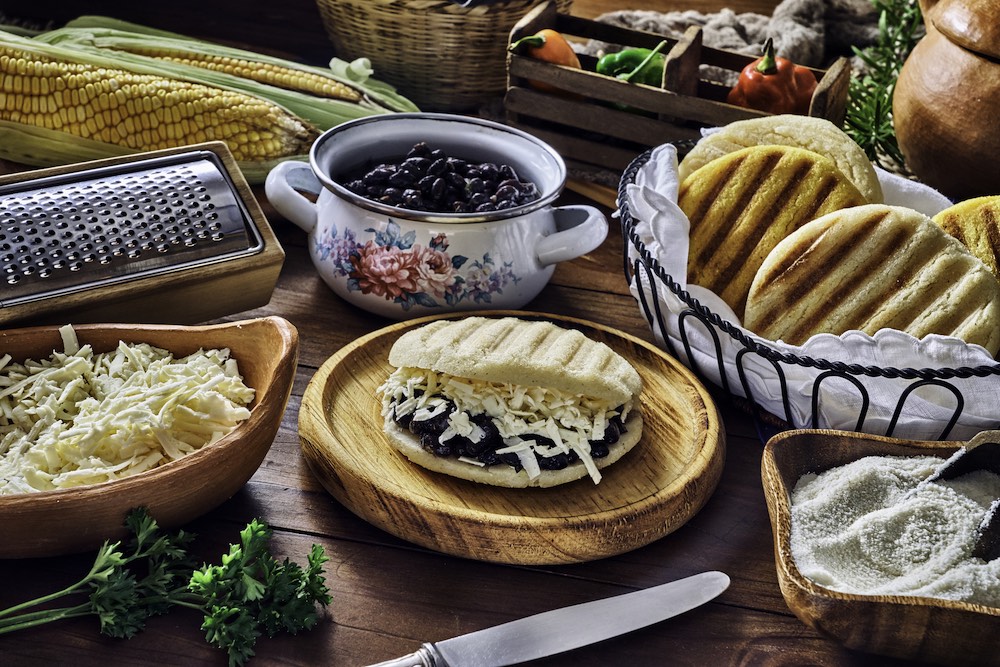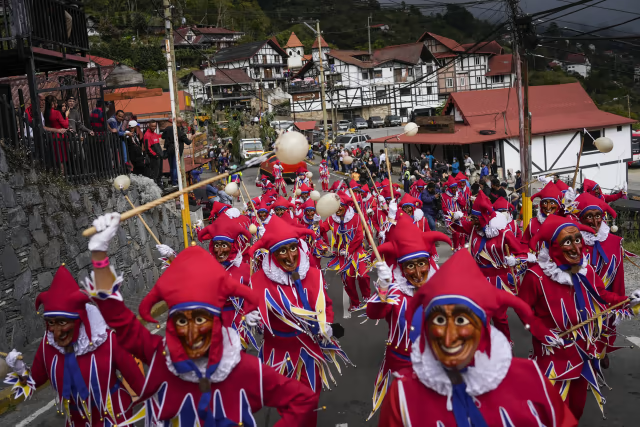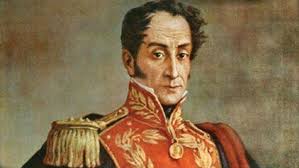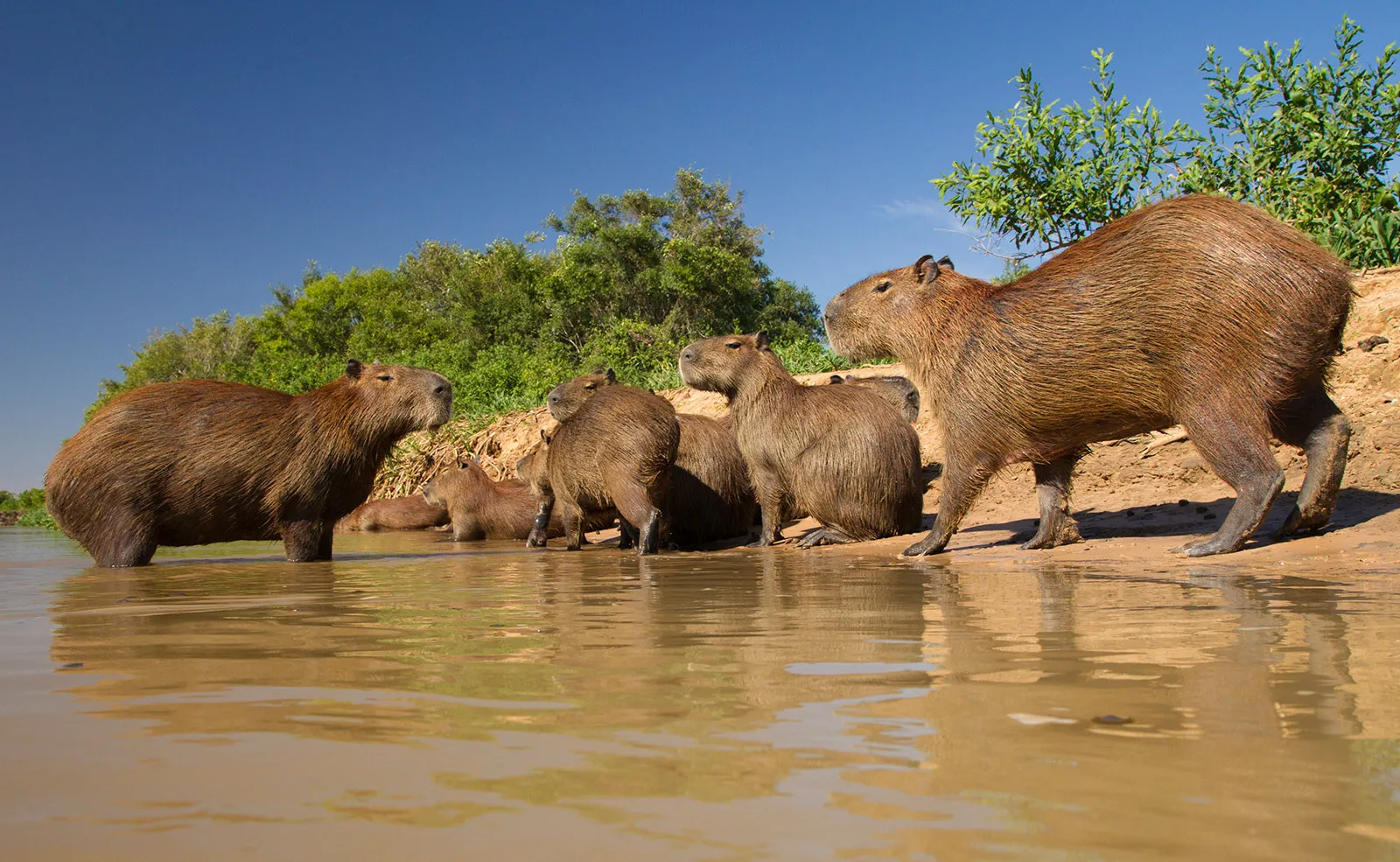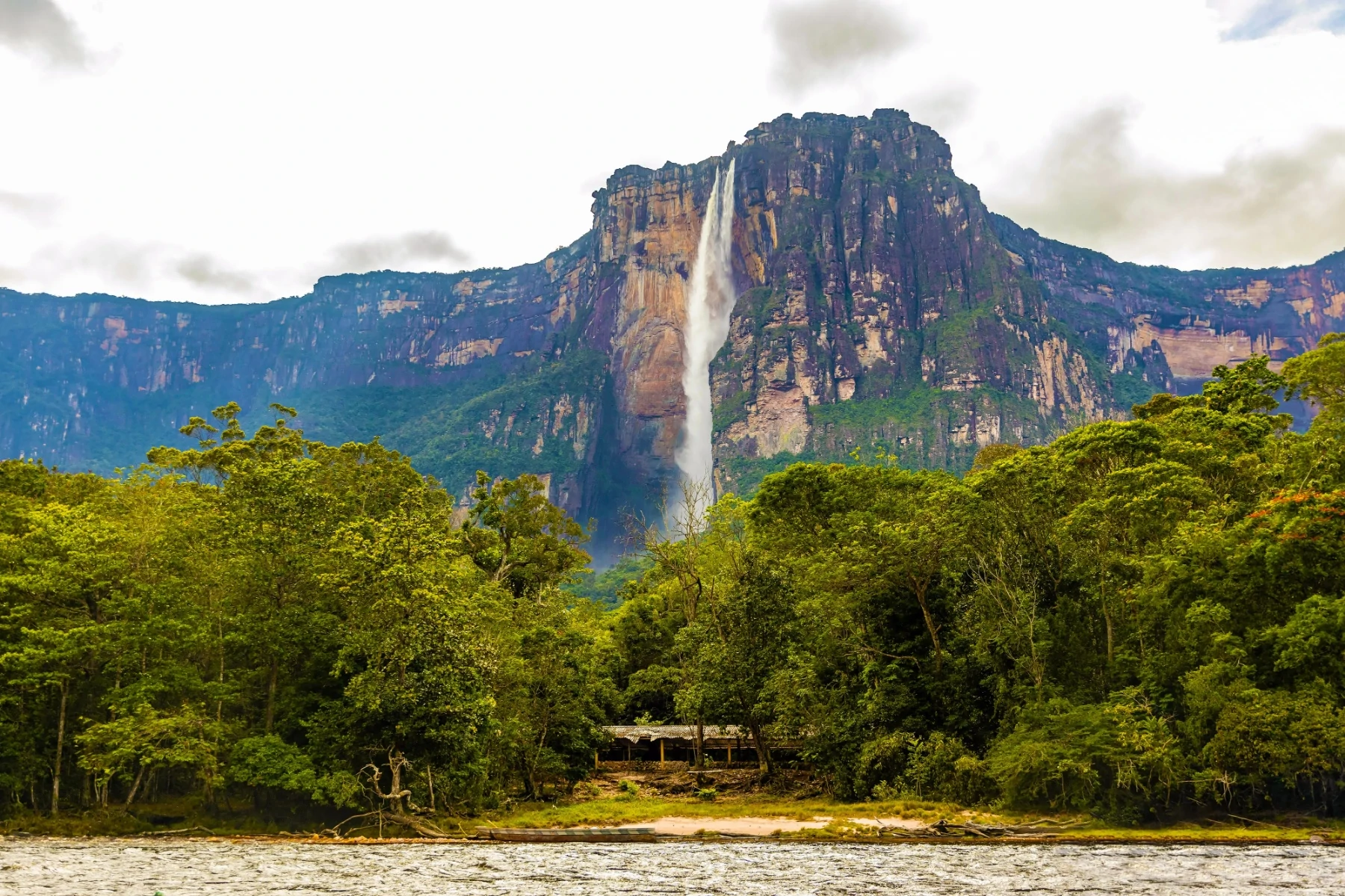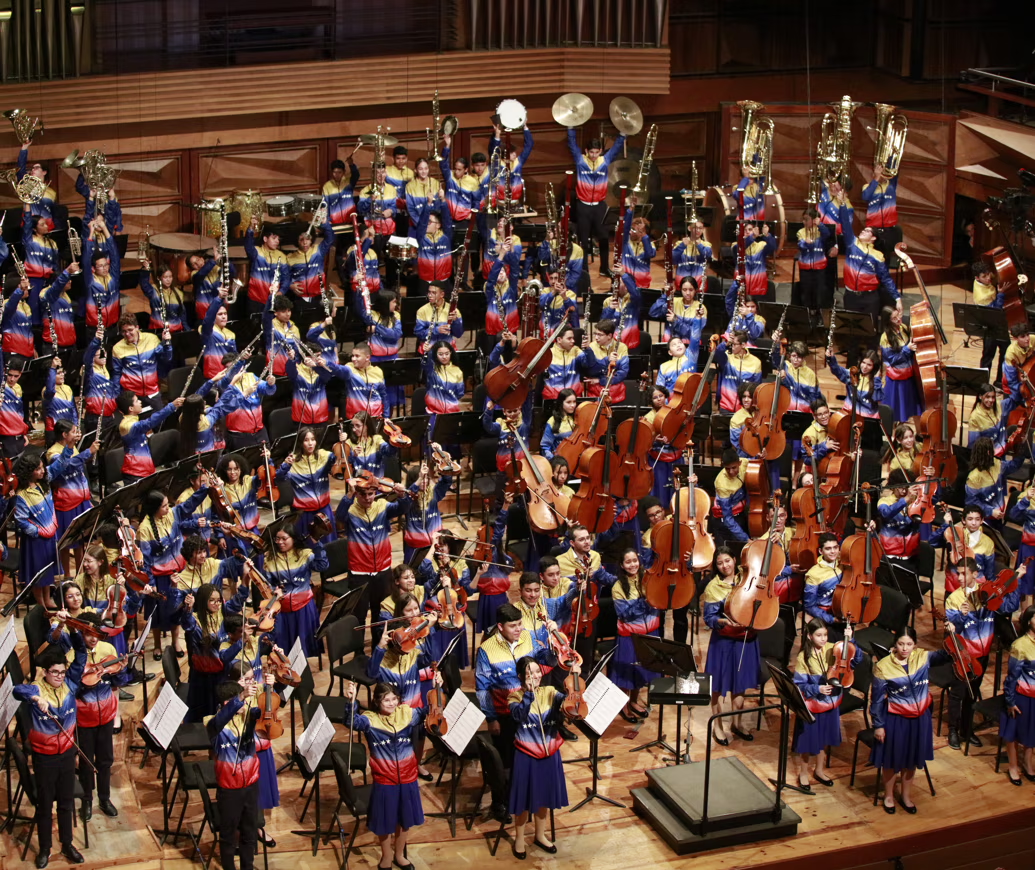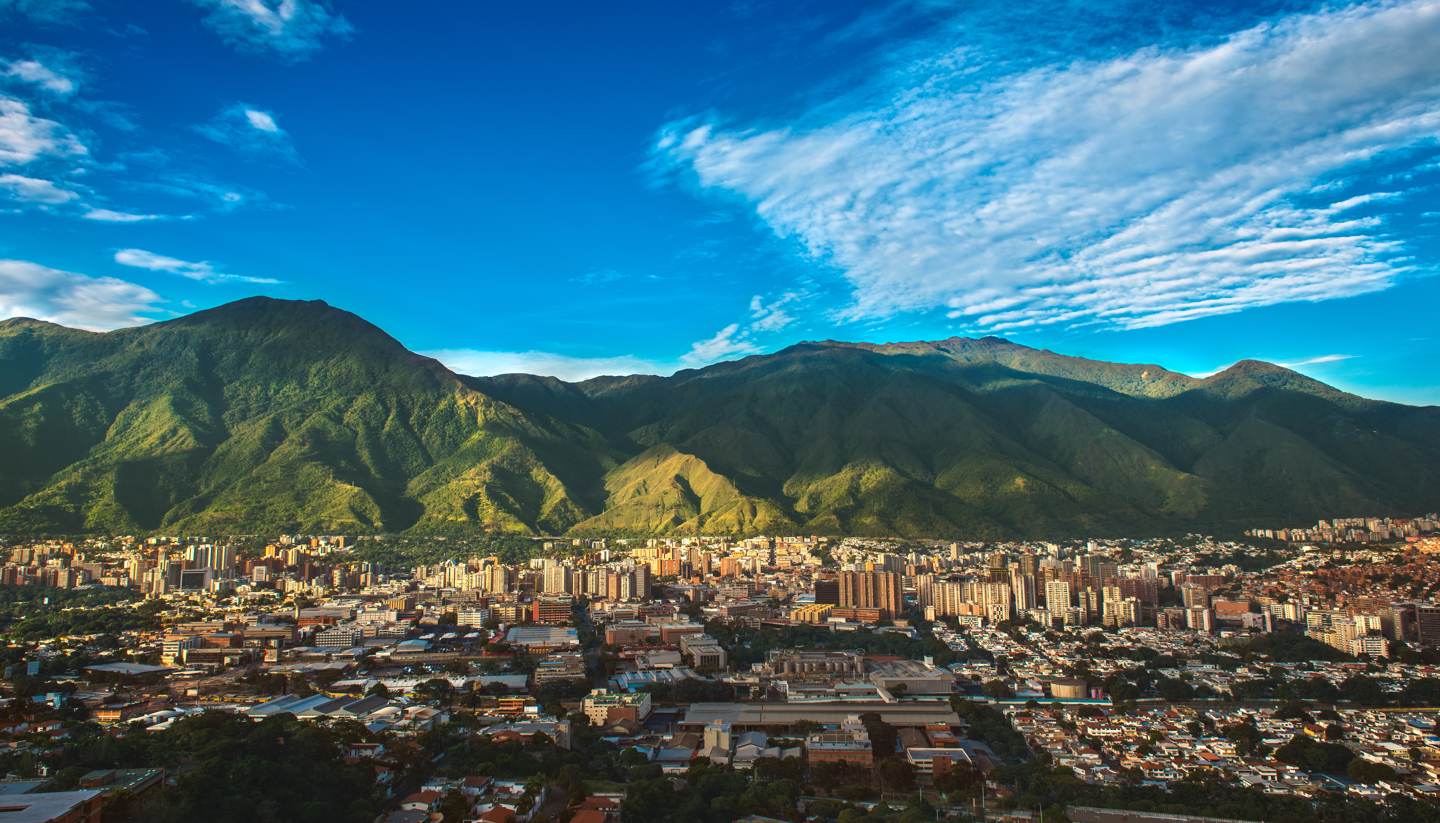20 Must-Know Venezuela Interesting Facts For Curious Travelers
Dive into the most interesting facts about Venezuela. Discover its diverse geography, unique wildlife, and cultural heritage in this must-read guide.
Author:Liam JonesReviewer:Sophia HarperNov 18, 202412.9K Shares182K Views
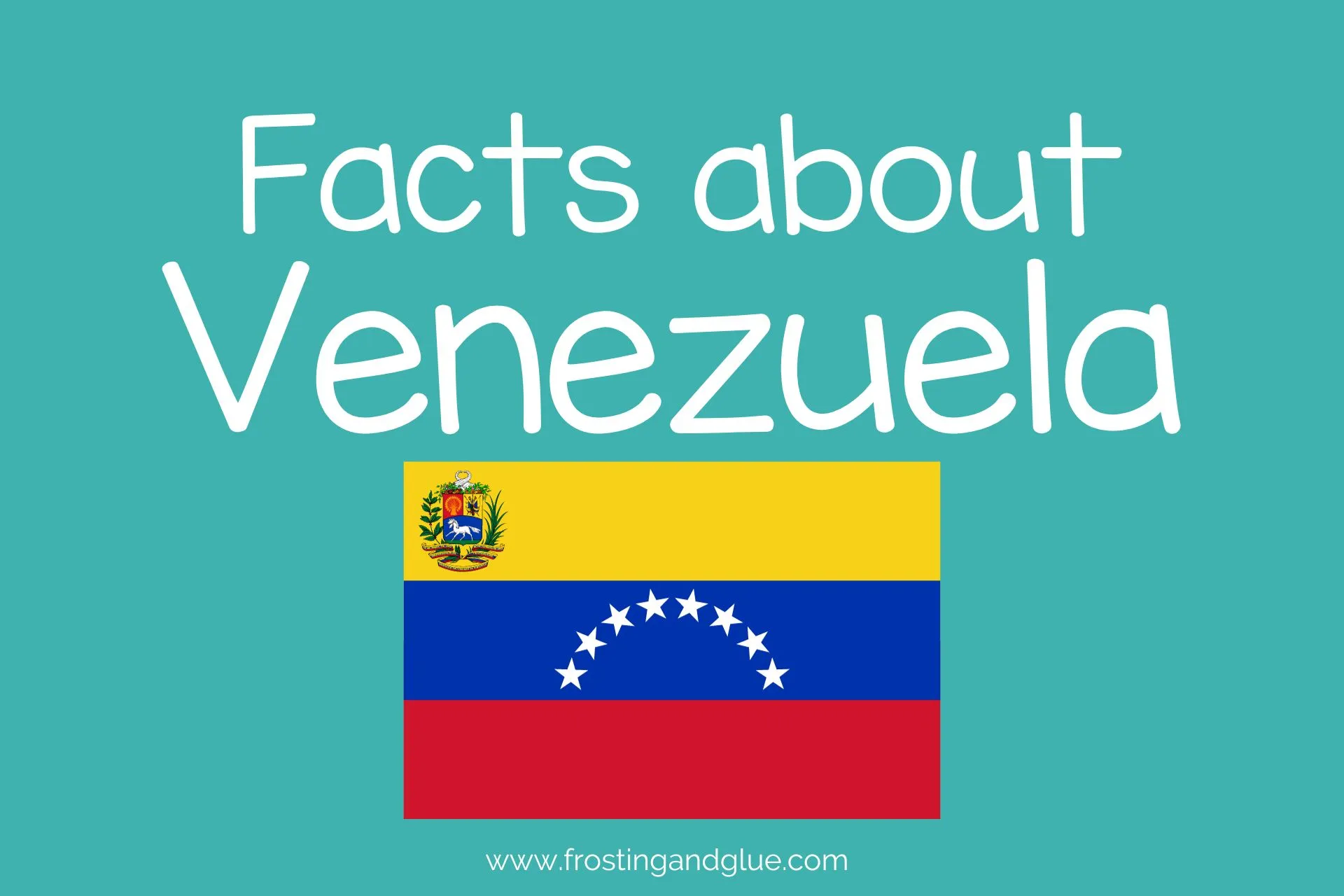
Venezuela, a country located on the northern coast of South America, is a land of stunning natural beauty, rich cultural heritage, and complex history. From the towering Andes mountains to the Caribbean beaches, Venezuela offers a variety of landscapes and experiences.
Understanding Venezuela's interesting facts, along with its unique characteristics, can provide a deeper appreciation for its contributions to the world, its challenges, and its vibrant culture.
1. Geography And Nature
Venezuela is known for its incredibly diverse geography, which includes everything from mountains and beachesto dense rainforests. One of the most famous natural landmarks is Angel Falls, the world’s highest waterfall, plunging an impressive 3,212 feet from the Auyán-Tepuí mountain in Canaima National Park.
This stunning waterfall is part of the larger Gran Sabana region, which is characterized by its table-top mountains, known as tepuis.The country's natural diversity is also reflected in its wildlife and national parks. Venezuela is home to a wide range of unique species, including the Orinoco crocodile, capybaras, and various types of parrots.
The country's national parks, such as Henri Pittier National Park and Morrocoy National Park, protect these species and their habitats, offering visitors a chance to experience Venezuela's biodiversity firsthand.
2. History And Culture
Venezuela's history is a tapestry of indigenous civilizations, Spanish colonization, and a fight for independence. Before the arrival of Europeans, the region was inhabited by various indigenous tribes, including the Carib and Arawak people.
These groups left a significant mark on the country's cultural landscape, contributing to its rich heritage.The Spanish colonization began in the early 16th century, and Venezuela became a part of the Spanish Empire. This period saw the introduction of European customs, language, and religion, which blended with indigenous traditions to create a unique Venezuelan culture.
The struggle for independence, led by Simón Bolívar, culminated in Venezuela gaining independence from Spain in 1821. Bolívar, known as "El Libertador," is a national hero, and his vision for a united Latin America continues to inspire Venezuelans.
Cultural influences in Venezuela are diverse and vibrant. Music and dance play a significant role in daily life, with genres like joropo, salsa, and merengue being particularly popular.
Festivals and celebrations, such as Carnival and the Feast of Corpus Christi, are marked by colorful parades, traditional music, and dance performances. These cultural expressions reflect the country's rich history and its people's resilience and creativity.
3. Economy And Resources
Venezuela's economy has been historically dominated by its vast oil reserves, which are among the largest in the world. The discovery of oil in the early 20th century transformed the country, making it one of the wealthiest nations in Latin America.
The oil industry has had a profound impact on Venezuela's economy, providing significant revenue and shaping its economic policies.However, reliance on oil has also led to economic challenges.
Fluctuations in oil prices have caused economic instability, and mismanagement and corruption have further exacerbated the situation. In recent years, Venezuela has faced severe economic crises, leading to hyperinflation, shortages of basic goods, and a significant decline in living standards.
Despite these challenges, Venezuela is rich in other natural resources, including gold, diamonds, and natural gas. Agriculture also plays a role in the economy, with the country producing crops such as coffee, cocoa, and sugarcane. Efforts to diversify the economy and reduce dependence on oil are ongoing, but progress has been slow.
4. Famous Landmarks And Attractions
Venezuela boasts a wealth of landmarks and attractions that draw visitors from around the world. Angel Falls, located in Canaima National Park, is perhaps the most famous. The park itself is a UNESCO World Heritage site, known for its stunning landscapes and unique biodiversity. Visitors can explore the park's rivers, lagoons, and tepuis, making it a paradise for nature lovers and adventure seekers.
Roraima Mountain, another iconic landmark, sits at the border of Venezuela, Brazil, and Guyana. This table-top mountain, or tepui, is shrouded in mystery and has inspired numerous myths and legends. It offers a challenging trek for adventurous hikers, with breathtaking views and unique flora and fauna at its summit.
Venezuela's historic cities and architectural landmarks also captivate visitors. The capital city, Caracas, features a mix of modern and colonial architecture, with landmarks such as the Teresa Carreño Cultural Complex and the National Pantheon, where Simón Bolívar is buried. The colonial city of Mérida, nestled in the Andes, is known for its beautiful churches, plazas, and the famous Mérida cable car, the longest and highest cable car in the world.
5. Notable People
Venezuela has produced many notable figures who have made significant contributions in various fields. Simón Bolívar, known as "El Libertador," is perhaps the most famous. He played a crucial role in the liberation of several South American countries from Spanish rule and remains a symbol of independence and unity.
In the arts, Venezuela has given the world many talented individuals. Writer Rómulo Gallegos, author of the classic novel "Doña Bárbara," is celebrated for his contributions to Latin American literature.
Painter Armando Reverón is renowned for his innovative techniques and evocative landscapes. Musically, conductor Gustavo Dudamel has gained international acclaim, leading major orchestras around the world and promoting classical music education.
Venezuelan athletes have also achieved international recognition. Baseball players like Miguel Cabrera and Félix Hernández have excelled in Major League Baseball, bringing pride to their home country.
6. Unique Traditions And Customs
Venezuelan culture is rich in traditions and customs that reflect the country's diverse heritage. Traditional Venezuelan cuisine is a significant aspect of cultural identity, featuring dishes like arepas (cornmeal cakes), hallacas (tamales filled with meat and vegetables), and pabellón criollo (a dish of shredded beef, black beans, rice, and plantains). These foods are often enjoyed during family gatherings and festive occasions.
Festivals and holidays are celebrated with enthusiasm across the country. Carnival is one of the most vibrant, featuring colorful parades, music, and dance.
The Feast of Corpus Christi is marked by the Dancing Devils of Yare, a UNESCO-recognized cultural event where participants in devil costumes dance through the streets to ward off evil spirits.
Christmas and New Year’s celebrations are also elaborate, with traditions such as the "Parrandas," where groups of musicians go from house to house singing holiday songs.
Social customs and practices in Venezuela emphasize family and community. Venezuelans are known for their warmth and hospitality, often welcoming guests with open arms. Respect for elders and strong family ties are important values, and gatherings often include extended family members.
7. Language And Education
Spanish is the official language of Venezuela, spoken by the vast majority of the population. However, the country is also home to numerous indigenous languages, reflecting its diverse cultural heritage.
Efforts to preserve these languages are ongoing, with some schools offering bilingual education programs to promote indigenous languages and cultures.
The education system in Venezuela is structured similarly to other Latin American countries, with primary, secondary, and higher education levels. The government provides free education at all levels, although the quality of education has faced challenges due to economic difficulties.
Despite these challenges, Venezuela has a relatively high literacy rate, and many Venezuelans pursue higher education both domestically and abroad.
8. Current Issues And Events
Venezuela has been facing a complex political and economic situation in recent years. The country has experienced significant political turmoil, with disputes over leadership and governance leading to widespread protests and international attention.
The economic crisis has resulted in hyperinflation, severe shortages of basic goods, and mass migration as people seek better opportunities abroad.Social challenges, such as high crime rates and public health issues, have compounded the difficulties faced by Venezuelans.
You Might Like: Iraqi Food Guide - 28 Traditional Dishes And Recipes [2024]
The healthcare system has struggled to provide adequate services, and many people lack access to essential medicines and treatments. Additionally, the COVID-19 pandemic has exacerbated existing problems, placing further strain on the country's resources.
International relations and migration have become critical issues as well. Millions of Venezuelans have fled the country, creating one of the largest displacement crises in the world. Neighboring countries and international organizations have been working to support these migrants, but the situation remains challenging.
9. Natural Wonders
Beyond Angel Falls, Venezuela boasts several other natural wonders. The Gran Sabana region, with its striking flat-topped mountains known as tepuis, has inspired legends of hidden treasures and unknown creatures. Canaima National Park, where Angel Falls is located, is a UNESCO World Heritage site and one of the most biodiverse places in the world. The country also has more than 40 national parks, providing extensive protection to its varied ecosystems.
10. The Venezuelan "Oil Curse"
While Venezuela's vast oil reserves have historically been a source of wealth, they have also created challenges. The so-called "oil curse" refers to the country's over-dependence on oil exports. This dependency led to economic instability when oil prices fell, and mismanagement of oil revenues exacerbated the issue. Despite efforts to diversify its economy, oil still accounts for a large portion of Venezuela's GDP and foreign exports.
11. Biodiversity
Venezuela is one of the most biodiverse countries on the planet, thanks to its varied climates and ecosystems. It is home to over 14,000 plant species, 1,400 bird species, and a variety of mammals, amphibians, and reptiles. The country's wildlife includes jaguars, tapirs, and the famous Orinoco crocodile. Venezuela’s diverse ecosystems, such as the Andes mountains, tropical forests, and coastal zones, support such a wide array of species.
12. Venezuelan Cuisine
Venezuelan cuisine is a reflection of the country’s diverse cultural influences. Staples include arepas, a versatile cornmeal dish that can be filled with anything from cheese to meat or beans. Another popular dish is pabellón criollo, Venezuela's national dish, which consists of shredded beef, rice, black beans, and fried plantains. Hallacas, a traditional Christmas dish, are similar to tamales and are made with a corn dough filled with meat, olives, raisins, and capers.
13. Carnival: The Heart Of Venezuelan Festivities
Carnival is one of the most anticipated events in Venezuela, with celebrations taking place across the country. In cities like Carúpano and El Callao, elaborate parades feature colorful costumes, music, and dance. The Caribbean influence is strong in Venezuelan Carnival, with African, indigenous, and Spanish elements blending together in vibrant performances.
14. Simón Bolívar: The Liberator Of South America
Simón Bolívar, Venezuela's most iconic historical figure, is celebrated for leading the country and much of Latin America to independence from Spain. His revolutionary ideals were not only influential in Venezuela but across the continent, as he sought to unite the newly independent countries of Latin America into a single federation. His legacy is so revered that many places, monuments, and even the capital city, Caracas, are named after him.
15. Venezuela's Unique Wildlife: The Capybara
Venezuela is home to the world’s largest rodent: the capybara. This semi-aquatic mammal is often found near rivers and wetlands in the country. Capybaras are social creatures and can be seen living in groups of 10 to 20 individuals. They are a source of fascination for visitors, often spotted in the wild or in nature reserves.
16. The Angel Falls Trek
For adventurous travelers, hiking to the base of Angel Fallsis one of the most challenging and rewarding experiences. The trek requires navigating through dense jungle, crossing rivers, and often involves camping in remote locations. The remoteness and difficulty of the hike make reaching the falls a once-in-a-lifetime achievement for explorers and adventure seekers.
17. Venezuelan Baseball: A National Passion
Baseball is by far the most popular sport in Venezuela, and the country has produced some of the most talented players in the world. Major League Baseball (MLB) has been home to stars like Miguel Cabrera, Félix Hernández, and Carlos González. Venezuelans are passionate about the game, and many youngsters dream of playing in the MLB, leading to an entire baseball culture within the country.
18. The Venezuelan Crisis And Mass Migration
In recent years, Venezuela has faced significant challenges, including political instability, hyperinflation, and economic decline. These issues have led to one of the largest migration crises in the world, with millions of Venezuelans leaving the country in search of better living conditions. Neighboring countries like Colombia, Brazil, and Argentina have seen an influx of Venezuelan migrants, with many seeking asylum or permanent residence.
19. Venezuelan Music: The Sound Of The Nation
Music is deeply embedded in Venezuelan culture, with several genres playing an important role in daily life. Joropo, a traditional folk music style from the plains of Venezuela, is a favorite, as are genres like salsa and merengue. Venezuela is also famous for its symphonic music, thanks to the Venezuelan Youth Orchestra System, which has produced internationally renowned conductors like Gustavo Dudamel.
20. Geography And Climate
Venezuela is located in the northern part of South America and has coastlines along both the Caribbean Sea and the Atlantic Ocean. The country's geography is incredibly varied, with vast plains, tropical rainforests, Andean mountain ranges, and stunning beaches. The climate varies from tropical in the lowlands to temperate in the Andean mountains. The country is also home to the Orinoco River, one of the largest rivers in South America, which spans over 2,140 kilometers (1,330 miles).
FAQs About Venezuela Interesting Facts
What Are The Most Popular Tourist Destinations In Venezuela?
Some of the most popular tourist destinationsin Venezuela include Angel Falls, Canaima National Park, Roraima Mountain, and the historic cities of Caracas and Mérida.
What Are Some Traditional Venezuelan Dishes?
Traditional Venezuelan dishes include arepas (cornmeal cakes), hallacas (tamales filled with meat and vegetables), and pabellón criollo (a dish of shredded beef, black beans, rice, and plantains).
Who Are Some Famous People From Venezuela?
Notable Venezuelans include Simón Bolívar, writer Rómulo Gallegos, painter Armando Reverón, conductor Gustavo Dudamel, and athletes Miguel Cabrera and Yulimar Rojas.
What Are The Main Cultural Influences In Venezuela?
Venezuelan culture is influenced by indigenous traditions, Spanish colonization, African heritage, and modern global trends. This diverse blend is reflected in the country's music, dance, cuisine, and festivals.
Conclusion
Venezuela is a country of contrasts, with breathtaking natural beauty, a rich cultural heritage, and significant challenges. Venezuela interesting factscan provide a deeper insight into its history, culture, and current events. Despite the difficulties faced by its people, Venezuela remains a land of resilience and hope.
Jump to
1. Geography And Nature
2. History And Culture
3. Economy And Resources
4. Famous Landmarks And Attractions
5. Notable People
6. Unique Traditions And Customs
7. Language And Education
8. Current Issues And Events
9. Natural Wonders
10. The Venezuelan "Oil Curse"
11. Biodiversity
12. Venezuelan Cuisine
13. Carnival: The Heart Of Venezuelan Festivities
14. Simón Bolívar: The Liberator Of South America
15. Venezuela's Unique Wildlife: The Capybara
16. The Angel Falls Trek
17. Venezuelan Baseball: A National Passion
18. The Venezuelan Crisis And Mass Migration
19. Venezuelan Music: The Sound Of The Nation
20. Geography And Climate
FAQs About Venezuela Interesting Facts
Conclusion

Liam Jones
Author
Liam Jones has made it his mission to prove that adventure doesn’t need a hefty budget. Having traveled to over 40 countries, he specializes in finding affordable ways to experience the world, from the best street food in Bangkok to hidden gems in Lisbon.
Liam’s travel tips have reached thousands of readers, empowering them to see the world on a shoestring budget without sacrificing quality. With a deep passion for local cultures, he continues to share his travel hacks, ensuring adventure remains accessible to all.

Sophia Harper
Reviewer
Sophia Harper’s photography acts as a portal to the soul of the places she visits. Drawn to South America’s landscapes and cultures, she has spent years capturing everything from the majesty of ancient ruins to the vibrancy of urban streets.
Sophia’s work isn’t just about documenting moments; it’s about evoking the emotions and stories behind them. A dedicated photographer, she has worked with local communities across South America to capture their rich cultural narratives through her lens.
Latest Articles
Popular Articles
